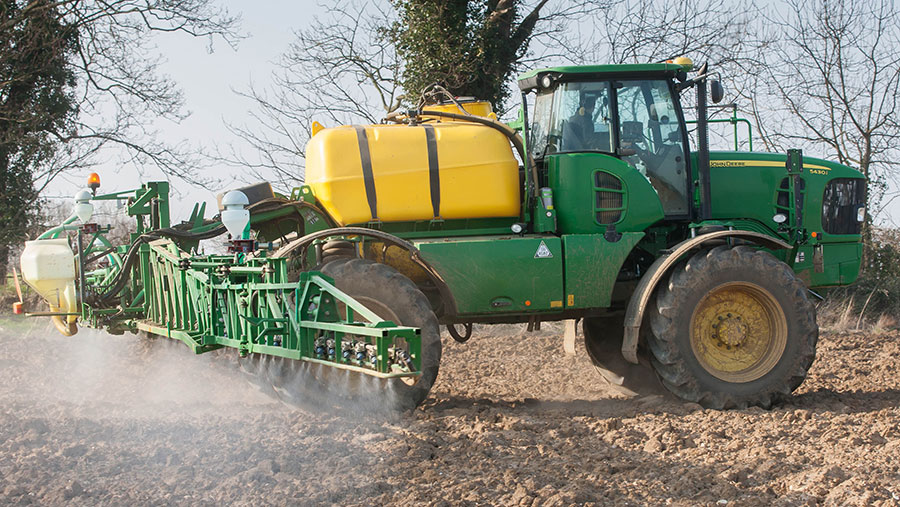Opinion: Brussels glyphosate row is like ‘Yes Minister’ script
 © Tim Scrivener
© Tim Scrivener So the glyphosate can has been kicked down the Brussels road yet again. Not wishing to mix my metaphors – but it would seem it’s just too hot to handle.
On the one hand the European Commission in Brussels does have the power to reauthorise glyphosate for 15 years and, what is more, thinks it should be so reauthorised because that’s the official advice they have been given by their safety experts at the European Food Safety Authority and the European Chemicals Agency.
But, and it’s a big but, the Commission is refusing to reauthorise as recommended because it wants the member states to take the decision for them, so that the decision looks more democratic.
See also: On-farm trials focus on growing without glyphosate
But here’s the rub. Many of the member states would actually prefer that the European Commission took the decision, because democratically elected politicians lack backbone when it comes to taking controversial decisions.
 Guy Smith comes from a mixed family farm on the north-east Essex coast
Guy Smith comes from a mixed family farm on the north-east Essex coastBecause of this impasse, the European Commission is now suggesting a much shorter period of reauthorisation to tempt enough member states to agree to what would be a much restricted term of approval that it, the Commission, doesn’t actually approve of as it’s not what’s been recommended to them by their official agencies.
It reads, and sounds, like a script from the 1980s sitcom Yes Minister – and the farce doesn’t stop because of the German elections.
German vote
Such is the division in the member states on this issue, that the largest state with the largest population, Germany, in effect has the casting vote.
The Germans under Angela Merkel had previously said their Government would vote in favour of full reauthorisation. But they have now moved to the abstain camp because Mrs Merkel’s party lost seats to the far right in the German election in September.
Although the far right in Germany isn’t particularly worried about glyphosate’s reauthorisation, Mrs Merkel has changed her position from approval to abstain because she now has to court the anti-glyphosate Greens to try to form a coalition government.
In fact you could say that because of a misconstrued desire to make things democratic, the entire decision as to whether to ban glyphosate across the EU comes down to the view of one minority party in just one EU state – the German Greens, who came sixth in the German election with less than 10% of the vote.
All this would be the making of a comic political satire if it wasn’t actually true and if the fate of a key crop production tool used by farmers wasn’t left hanging in the balance.
UK involvement
Encouragingly none of this farce involves the UK government, which is reassuringly clear that this important herbicide should be given a full reauthorisation as per the recommendation of the scientists in the safety agencies.
But just to add to the irony, because of Brexit, the UK now lacks key influence in Brussels when it comes to good science-based regulation.
How this will all play out is anyone’s guess – it will probably be another fudge. But what is clear is that when politicians and administrators stop listening to the authorities charged with scientific evaluation of crop protection materials, then you get bad regulation.
In the case of glyphosate it could end up being banned because of fears about its toxicity, despite the fact those charged with assessing toxicity say it isn’t toxic.
The double irony is that, despite it being a herbicide that enables farmers to reduce environmental impact, the influence of so-called environmentalists could see it banned.
As we leave the EU and the opportunity arises to regulate our own crop protection materials, the current circus in Brussels that has erupted over the future of glyphosate needs bearing in mind.
